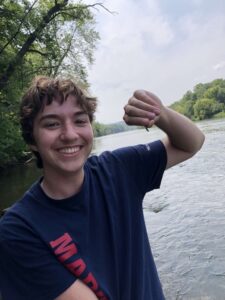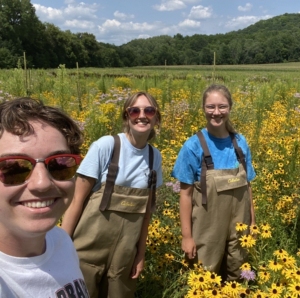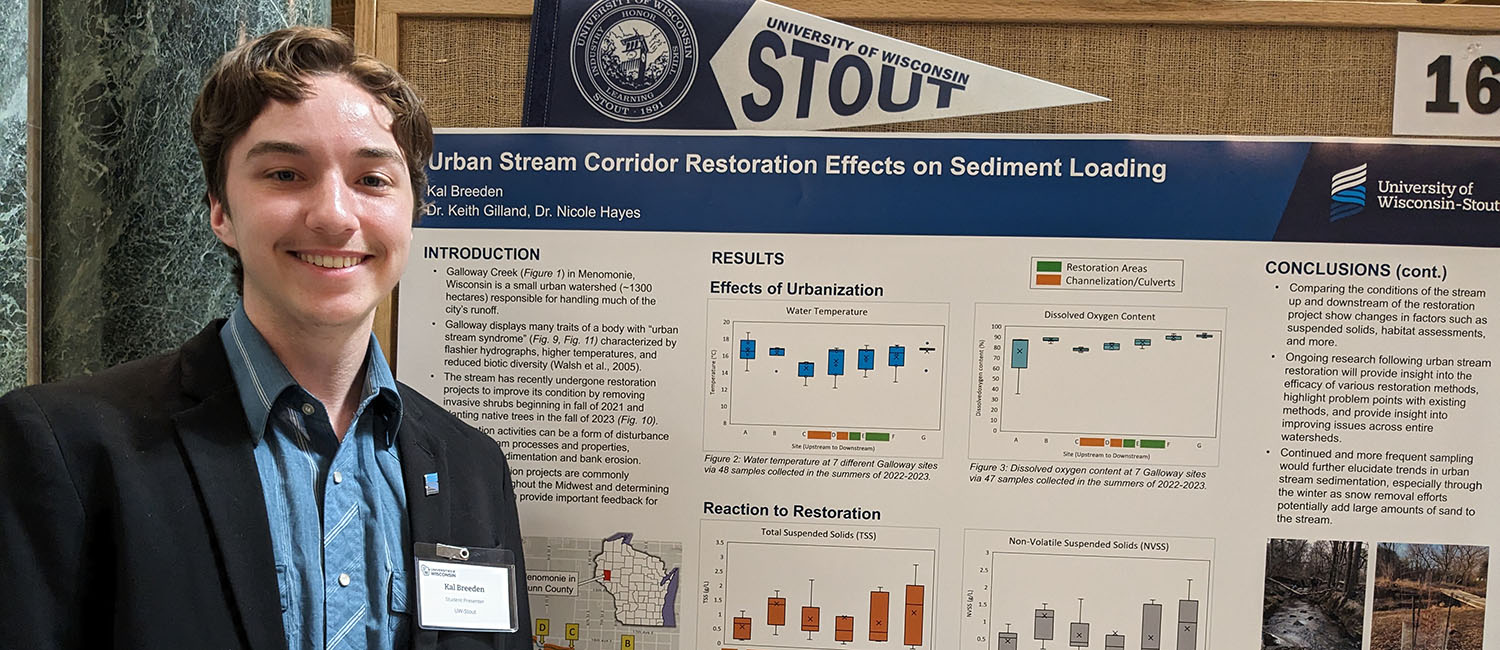The 2024 Research in the Rotunda featured 16 Freshwater Collaborative-funded research projects. Students shared more about their experience.
Student: Kal Breeden
University: UW-Stout
Major: Environmental Science with a concentration in Natural Resource Conservation and minors in Plant Science and GIS
Expected graduation date: May 2025
Mentors: Keith Gilland and Nicole Hayes
Summarize the research and your role.
This research project was focused on monitoring the water quality of streams and lakes in the Red Cedar River watershed throughout Dunn County. My role as a student researcher was to work with my peers on sampling or research and report back to our professors/supervisors about our progress.
We conducted work in the field and the lab during the summer and continued working on research projects during the school year. During the summer, we sampled over 120 different stream sites repeatedly and went out on Lake Menomin or Lake Tainter on a weekly basis. Last summer, we added sediment samplers to our urban stream, Galloway Creek, which became an important part of my research, which focused on how restoration impacts sediment loading and other factors in urban streams. My research in 2023 was about how restoration projects impact trout streams over time.

What skills did you learn?
I learned many new skills related to limnology, laboratory work, and especially fieldwork. I learned how to use different pieces of equipment and collect different types of water quality data in the field or through experimentation. I also learned about equipment management and organization and how to set yourself up to be efficient when out in the field.
What has been your favorite part about this experience?
I really enjoyed spending so much time outside and visiting new places, and I had a lot of fun with my coworkers. I found that I love fieldwork and how it helps you form a meaningful connection with a location and the data you’re collecting there. A few of my favorite memories would be catching a giant water bug, catching a lamprey for the first time, stumbling upon deer fawns hidden in the grass, seeing a lot of ghost pipe plants, and finding a coyote skull.
What are some of the opportunities you’ve had because of this research?
Thanks to this experience, I was chosen to present research at Research in the Rotunda twice, the National Conference on Undergraduate Research twice, and at other events such as UW-Stout’s Research Day and the Board of Regents Student Showcase. In addition, thanks to the fieldwork experience I’ve gained, I was offered and accepted a job with the Montana Fish, Wildlife and Parks this summer working as a Wildlife Habitat Plant Technician, which I am very excited about.

What do you plan to do after graduation?
I hope to continue a career in environmental conservation and monitoring. I’m very interested in all kinds of plants, animals, and water resources and could see myself working with any of those. I’m very excited to do more fieldwork and learn more about the environment, wherever I end up.
How will this experience help you attain your career goals?
This experience has already helped me attain my career goals by giving me valuable fieldwork and laboratory experience that employers look for in a job candidate. Working on a project like this for two years has been such a valuable experience, and I am so glad to have been involved.

